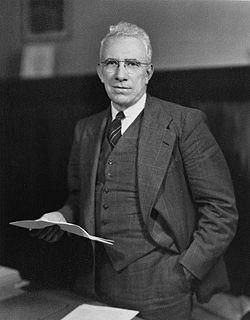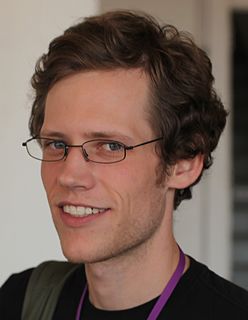A Quote by George Aiken
Lincoln's reference to government of the people, by the people, for the people is a generally satisfactory definition of democracy. I say generally because when it comes to fair and workable details, democracy fails to completely meet the criteria enunciated by Lincoln by a rather wide margin.
Related Quotes
Democracy can thrive only when it enlists the devotion of those whom Lincoln called the common people. Democracy can hold that devotion only when it adequately respects their dignity by so ordering society as to assure to the masses of men and women reasonable security and hope for themselves and for their children.
The democratic principle, enunciated in the words of the Declaration of Independence, declared that government was secondary, that the people who established it were primary. Thus, the future of democracy depended on the people, and their growing consciousness of what was the decent way to relate to their fellow human beings all over the world.
When we talk about Cuban democracy we are referring to participatory democracy which is big difference with representative bourgeois democracy. Our is a democracy in which everything is consulted with the people; it is a democracy in which every aspect and important decision that has an impact in the life and society of the people, is done in consultation.
The omission of an expected conjunction is called an asyndeton. Caesar is supposed to have said about Gaul: I came, I saw, I conquered. Lincoln concluded the Gettysburg Address, That government of the people, by the people, for the people, shall not perish from the earth.Caesar seems to have omitted his conjunction to speed things up; he is emphasizing how quickly the conquest of a place follows from its being sighted by a great and ambitious general. Lincoln's omission is more subtle
I believe that people have a right to decide their own destinies; people own themselves. I also believe that, in a democracy, government exists because (and only so long as) individual citizens give it a temporary license to exist, in exchange for a promise that it will behave itself. In a democracy, you own the government. It doesn't own you.
It is very hard to answer the oft-posed questions about how Abraham Lincoln would respond to some current condition. My favorite story on that count is that the late great Lincoln scholar Don Fehrebacher was asked, during the struggles over bussing for racial balance a few years ago, what Lincoln would say about "bussing" and he thought awhile and then answered : "what Lincoln would say would be: "What's a bus?"
































